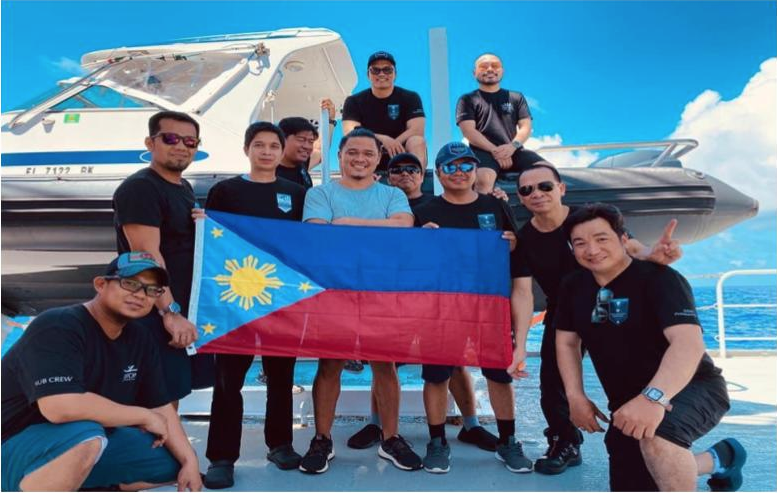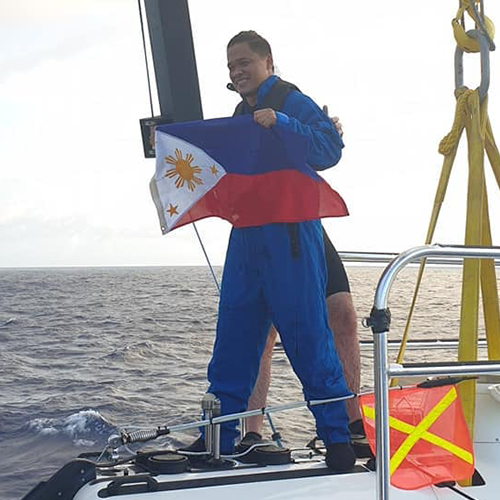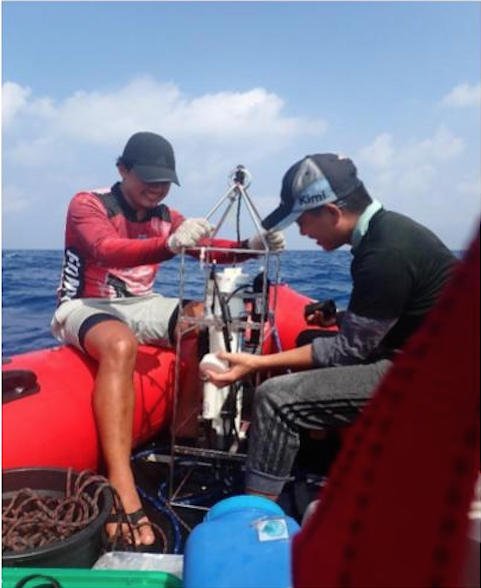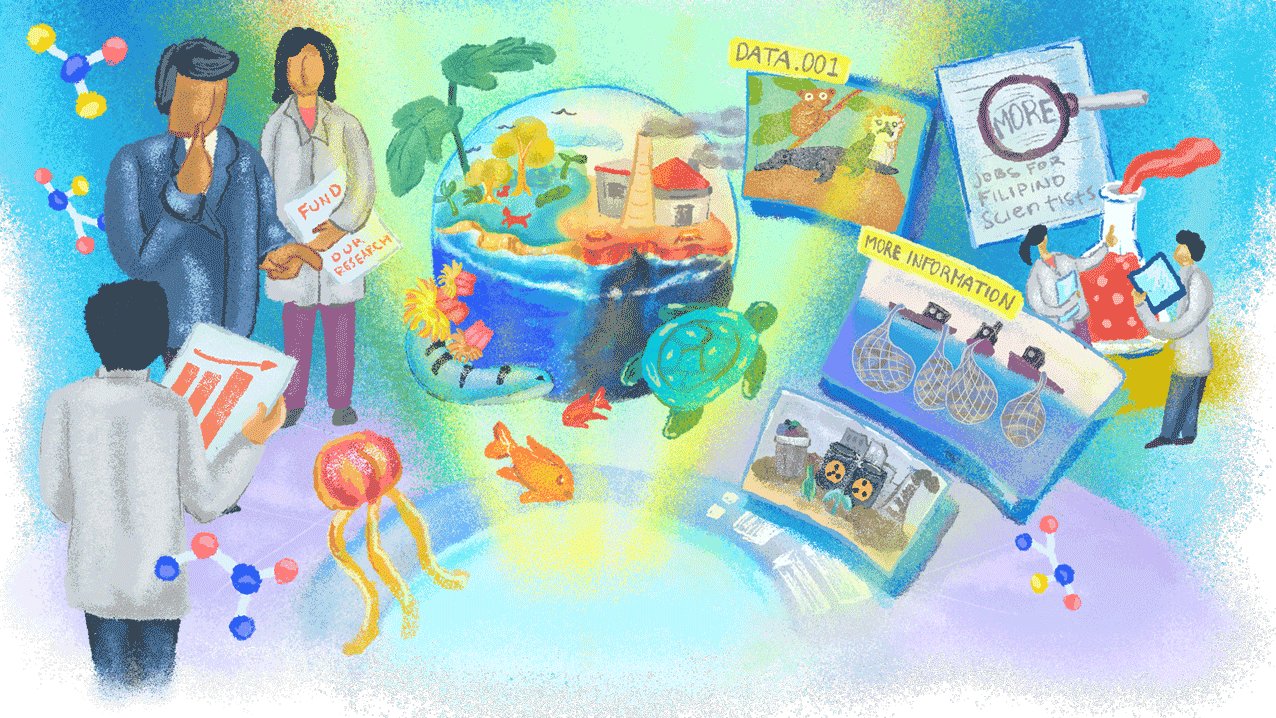Science
YES to someone who has ‘konSIYENSYA’
We need leaders who know how to listen and recognize that criticisms and expert opinions are both 'ambag' to national growth and progress. We need leaders who believe in science and scientists and their involvement in collective decision-making.
The world is changing and will continue to change. More than ever, we need scientists and researchers who can help unravel these mysteries and understand how to deal with them. However, scientific knowledge and information will not be useful unless we have leaders who are also willing to listen and work with the experts from different fields to help translate them into policy and be committed to implement them to resolve societal problems.
For example, the Philippines’ archipelagic nature and location make it both a privilege and a challenge. The high diversity in habitats, landscapes, and ecological processes result in high biodiversity of both land and marine environments, even touting the Philippines as the “epicenter of marine biodiversity.”
This understudied and thus, underappreciated marine biodiversity and its associated ecological services in the waters of the country offer limitless opportunities and untapped economically valuable resources. These include the vast waters in the extended continental shelf in the northeast Philippines, the rich region of the West Philippine Sea, and even the hadal depths of the Philippine Trench.
With the country being composed of almost 82 percent water, national growth mainly relies on our understanding of the resources we have under and above water through marine scientific research (MSR) initiatives. We cannot utilize and protect something unless we know what they are and how they function. And for this, we need leaders who will support long-term investments in research and development, not only in the marine but in all environments.


The location and archipelagic nature of the country also make it challenging since we are at the receiving end of the effects of the changes happening in the world. Sea level rise, ocean acidification, sea surface warming, and extreme weather events are just some of the new and emerging threats that put the Philippines in a very vulnerable position.
The leader we need should recognize the value of investing on our scientists and researchers, homegrown or otherwise, and provide them with opportunities akin to their expertise.
In addition, we have unprecedented rates of environmental degradation, ecosystems destruction, species extinction, declining stocks due to illegal, unreported, and unregulated (IUU) fishing activities; overfishing, and different types of pollution. This has been compounded by the geopolitical situation in the west of the country, making it difficult for us to implement regulations and policies to protect our resources within our exclusive economic zone (EEZ).
All of these will affect the quality of life of Filipinos, from food security in both land and water, to health risks, and even employment opportunities. For these, MSRs are important as they provide information that can become basis of policies and initiatives to help appreciate, manage, conserve, protect, and sustainably utilize our resources.
As we work together with the international community to help lessen the effects of climate and other related changes, local research and scientific information on the other hand will aid in understanding possible future scenarios at the local setting. Thus, providing us with insights to draft possible mitigation and prevention strategies that will ensure safety and security of the future generations of Filipinos. To emphasize, these are largely done through research and by scientists.

The roles played and the contributions of scientists in national progress are indeed invaluable. However, the work environment and job opportunities for scientists in the country remain limited and challenging. It has been suggested that the ideal ratio of scientists per population should be 380 per million, but in 2019, the ratio in the country was still at 189 per million, short by almost half.
Thus, the leader we need should recognize the value of investing on our scientists and researchers, homegrown or otherwise, and provide them with opportunities akin to their expertise.
Putting people with greater appreciation for facts and data will help drastically shift decision-making processes towards more science-driven approaches and allocation of resources in the right priorities.
Clearly, the current employment situation for experts in Science, Technology, Engineering and Mathematics (STEM) has significantly improved compared to a few decades ago but much still needs to be done and can be improved. Many of the STEM workforce remain contractual in both academic and agency workplaces, making such professions uninteresting for many Filipinos seeking financial stability.
These also undermine their intellectual contributions to development. Although the number of students graduating from MS and PhD programs has increased in the recent years, a common issue is their ability to be absorbed in tenured or regular positions after finishing either in the private or government institutions, with many resorting to working outside the country both for professional and personal reasons.
This can be partially solved by hiring people with the right qualifications and training in the right positions, from the rank-and-file to the higher decision-making offices and even in appointed positions. Putting people with greater appreciation for facts and data will help drastically shift decision-making processes towards more science-driven approaches and allocation of resources in the right priorities.
We need leaders who know how to listen and recognize that criticisms and expert opinions are both ambag to national growth and progress. We need leaders who believe in science and scientists and their involvement in collective decision-making. Borrowing the words of Dr. Joey D. Ocon, chair of the UP Diliman-Department of Chemical Engineering, we clearly need a leader who has “konSIYENSYA.”
Your vote counts. Register now! Go to irehistro.comelec.gov.ph.



